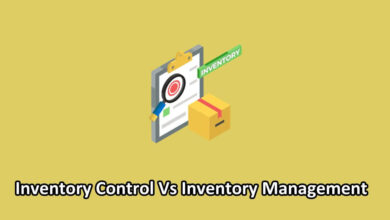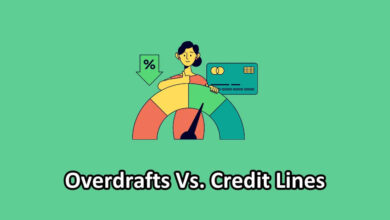Are you ready to unravel the financial mysteries of business accounting? In the world of finance, understanding the difference between cash accounting and accrual accounting is like holding the key to a treasure trove of insights. In this blog, we’ll take you on a journey through these two fundamental accounting methods, shedding light on their nuances and implications.
So, what exactly are cash accounting and accrual accounting? Imagine them as two different lenses through which businesses view their finances. Cash accounting records transactions when money physically changes hands, while accrual accounting recognizes revenue and expenses when they are earned or incurred, regardless of when the cash flows.
Cash Accounting Vs. Accrual Accounting (A Comparison)
| Cash Accounting | Accrual Accounting |
|---|---|
| Cash basis accounting is a method of recording financial transactions based on the actual cash inflows and outflows. | Accrual basis accounting recognizes transactions when they are earned or incurred, regardless of when cash is received or paid. |
| In the case of cash basis of accounting, transactions are recorded only when cash is received or paid. | In the case of accrual basis of accounting, transactions are recorded when they are earned or incurred, regardless of when cash is received or paid. |
| Cash accounting is simpler and easier to understand and implement. | Accrual accounting is more complex, requiring meticulous recordkeeping and a deeper understanding of accounting principles. |
| Cash accounting may provide a less accurate representation of a business’s financial position since it doesn’t account for accounts receivable or accounts payable. | Accrual accounting offers a more transparent and comprehensive view of a company’s financial position by recognizing all revenue and expenses. |
| Cash accounting generally does not adhere to Generally Accepted Accounting Principles (GAAP). | Accrual accounting aligns with GAAP, making it suitable for larger businesses, publicly traded companies, and organizations. |
| Cash accounting provides a clear picture of a business’s actual cash flow, which can be beneficial for managing day-to-day expenses and short-term liquidity. | Accrual accounting offers insights into a company’s long-term financial health but may not reflect its immediate cash position accurately. |
| Cash basis accounting is suitable for small businesses, sole proprietors, and individuals with straightforward financial transactions. | Accrual basis accounting is more suitable for larger businesses, corporations, and organizations with complex financial transactions. |
| Businesses using cash accounting report income for tax purposes when cash is received. | In the case of accrual accounting, income is reported for tax purposes when it’s earned, not when cash is received. |
What is Cash Accounting?
Cash accounting is a straightforward method of tracking financial transactions based on the actual cash inflows and outflows. In this system, income is recorded when cash is received, and expenses are recorded when cash is paid out. It provides a real-time snapshot of a business’s financial situation, making it particularly useful for businesses that prioritize liquidity and immediate cash management.
Advantages of Cash Basis of Accounting
- Simplicity: Cash accounting is easy to understand and implement, making it ideal for small businesses and sole proprietors.
- Cash Flow Management: It provides a clear picture of your actual cash position, aiding in better cash flow management.
- Tax Benefits: Small businesses often enjoy tax advantages with cash accounting, as they only pay taxes on money they’ve received.
- Reduced Recordkeeping: With fewer complex transactions, recordkeeping becomes less burdensome.
Disadvantages of Cash Accounting
- Limited Financial Insight: It may not reflect the true financial health of a business since it doesn’t consider accounts receivable or accounts payable.
- Inaccurate Timing: Income and expenses might not match when they are actually earned or incurred.
- Complex Transactions: Businesses with multiple revenue streams or high transaction volumes may find cash accounting inadequate.
What is Accrual Accounting?
Accrual accounting, on the other hand, focuses on when transactions are earned or incurred, not when cash changes hands. This method offers a more comprehensive view of a company’s financial position by recognizing revenues and expenses as they are earned or incurred, regardless of the actual cash flow timing.
It aligns financial reporting with the economic realities of a business, providing a clearer picture of its long-term financial health and performance. This method is favored by larger businesses and is often required for compliance with Generally Accepted Accounting Principles (GAAP).
Advantages of Accrual Accounting
- Accurate Financial Reporting: It matches income and expenses with the period in which they occur, providing a truer financial picture.
- Better Long-Term Planning: Accrual accounting helps in long-term financial planning by considering accounts receivable and accounts payable.
- GAAP Compliance: It aligns with Generally Accepted Accounting Principles (GAAP), often required for larger businesses and publicly traded companies.
- Investor Confidence: Accrual accounting can inspire greater confidence among investors and lenders.
Disadvantages of Accrual Accounting
- Complexity: Accrual accounting can be more challenging to understand and maintain, requiring more rigorous recordkeeping.
- Tax Timing: It may lead to higher tax obligations as income is recorded when earned, regardless of cash receipt.
- Cash Flow Challenges: Businesses may face cash flow issues if they have significant accounts receivable but limited cash on hand.
Key Differences Between Cash Accounting and Accrual Accounting
Complexity
- Cash Accounting: It is simpler and easier to understand and implement, making it suitable for small businesses and individuals with straightforward financial operations.
- Accrual Accounting: It is more complex, requiring meticulous recordkeeping and a deeper understanding of accounting principles. It is typically used by larger businesses and is often required for regulatory compliance.
Timing of Income Tax Reporting
- Cash Accounting: Businesses using cash accounting report income for tax purposes when cash is received. This can result in lower taxes in the short term because income is only taxed when it’s in hand.
- Accrual Accounting: Income is reported for tax purposes when it’s earned, not when cash is received. This can lead to higher tax liabilities in the short term, especially for businesses with substantial accounts receivable.
Financial Transparency
- Cash Accounting: It may provide a less accurate representation of a business’s financial position since it doesn’t account for accounts receivable or accounts payable. This can make it harder to assess long-term financial health.
- Accrual Accounting: Offers a more transparent and comprehensive view of a company’s financial position by recognizing all revenue and expenses, including those not yet received or paid in cash.
Cash Flow Management
- Cash Accounting: Provides a clear picture of a business’s actual cash flow, which can be beneficial for managing day-to-day expenses and short-term liquidity.
- Accrual Accounting: Offers insights into a company’s long-term financial health but may not reflect its immediate cash position accurately. This could lead to challenges in managing short-term cash flow.
Suitable For
- Cash Basis Accounting: Cash basis accounting is suitable for small businesses, sole proprietors, and individuals with straightforward financial transactions. It’s often used by those who prioritize simplicity and have minimal accounts receivable and accounts payable. Retailers, small service providers, and freelancers often find this method appropriate.
- Accrual Basis Accounting: Accrual basis accounting is more suitable for larger businesses, corporations, and organizations with complex financial transactions. It’s commonly used in industries with substantial accounts receivable and accounts payable, such as manufacturing, construction, and services. Publicly traded companies also employ this method to comply with accounting standards and provide accurate financial statements.
How Cash and Accrual Accounting Affect Financial Statements
Cash accounting and accrual accounting have different effects on financial statements, such as the balance sheet and the income statement.
Under cash accounting, revenue is recorded when cash is received, and expenses are recorded when cash is paid. This means that the balance sheet will only show cash assets and liabilities, and the income statement will only show cash revenues and expenses.
Under accrual accounting, revenue is recorded when it is earned, and expenses are recorded when they are incurred, regardless of when cash is received or paid. This means that the balance sheet will include non-cash assets and liabilities, such as accounts receivable and accounts payable, and the income statement will include non-cash revenues and expenses, such as accrued revenue and accrued expenses.
Examples of Financial Statements Under Each Method
Cash accounting
- Balance sheet: Cash, accounts receivable, accounts payable
- Income statement: Cash revenue, cash expenses
Accrual accounting
- Balance sheet: Cash, accounts receivable, accounts payable, accrued revenue, accrued expenses
- Income statement: Cash revenue, accrued revenue, cash expenses, accrued expenses
Factors to Consider When Selecting an Accounting Method
There are a number of factors to consider when selecting an accounting method, including:
- The size and complexity of your business
- The type of industry you are in
- Your tax liability
- Your accounting expertise
Real-life Scenarios illustrating the Choice Between Cash and Accrual Accounting
Scenario 1:
A small business owner sells products online and receives payment from customers when the products are shipped. The business owner also uses cash accounting to record revenue and expenses. This is a good example of a business that can use cash accounting because the business owner receives cash from customers and pays expenses in cash within a relatively short period of time.
Scenario 2:
A large company provides services to customers and bills them for the services at the end of each month. The company also incurs expenses throughout the month. The company uses accrual accounting to record revenue and expenses. This is a good example of a business that needs to use accrual accounting because the company earns revenue and incurs expenses before it receives or pays cash.
Conclusion
In this comprehensive exploration of accounting methods, we’ve highlighted the key differences between cash and accrual accounting, showcased their impact on financial reporting, and provided insights into choosing the right method. Now, let’s summarize the main takeaways to reinforce your understanding and guide your future financial decisions.
Armed with this knowledge, you possess a valuable tool for navigating the financial landscape. As you embark on your financial journey, whether as a business owner or an individual seeking financial stability, we encourage you to apply the principles of cash and accrual accounting to make informed, strategic choices and secure a brighter financial future.
FAQs about Cash Basis Vs. Accrual Basis Accounting
What is the Fundamental Difference Between Cash Accounting and Accrual Accounting?
Cash accounting and accrual accounting differ primarily in how they recognize revenue and expenses. Cash accounting records transactions when cash is received or paid, while accrual accounting records transactions when they are earned or incurred, regardless of cash flow.
Which Accounting Method is More Suitable for Small Businesses or Startups?
Cash accounting is often preferred by small businesses and startups because of its simplicity. It provides a clear view of actual cash flow, making it easier to manage day-to-day expenses and monitor short-term liquidity. However, as the business grows, it may transition to accrual accounting for a more accurate financial picture.
How Does Each Accounting Method Affect Income Tax Reporting?
Cash accounting reports income for tax purposes when cash is received, potentially resulting in lower taxes in the short term. Accrual accounting reports income when it’s earned, which can lead to higher tax liabilities, especially for businesses with substantial accounts receivable. The choice of method can impact tax planning and cash flow.
Is Accrual Accounting Required for Regulatory Compliance or Attracting Investors?
Accrual accounting is often required for regulatory compliance, especially for larger businesses and publicly traded companies. It aligns with Generally Accepted Accounting Principles (GAAP) and provides a more transparent and comprehensive view of financial statements. Investors and creditors may also prefer accrual-based financial statements for assessing a company’s financial health and performance.



